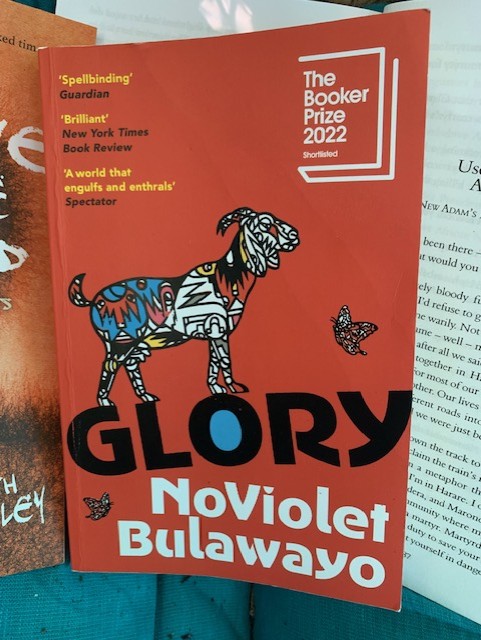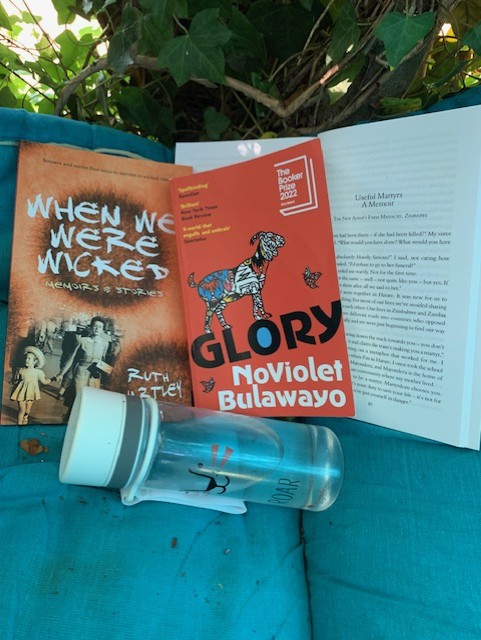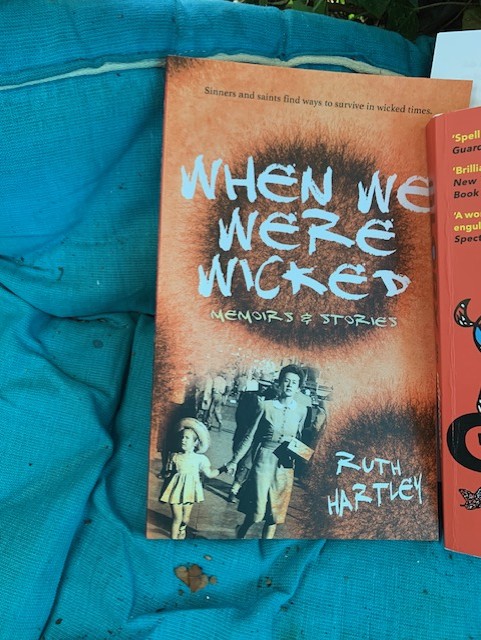
NoViolet Bulawayo’s remarkable satire Glory, about Zimbabwe was shortlisted for the Booker Prize in 2022. I can’t recommend it highly enough. As well as being a very good read. it is a skilled, literate, well researched and detailed account of the last days of the murderous Robert Mugabe, the Founding Father of Zimbabwe and the start of the reign of the Killer Crocodile. It is also a gripping story about so many extraordinary “Jihadadan” characters who are simply the ordinary people of Zimbabwe. In Glory they are given their voices – so many different and differing voices – all such human animals.
NoViolet Bulawayo and Zimbabwean writers
I follow Zimbabwean writers and always I start with some trepidation because of my colonial heritage and childhood in Southern Rhodesia. I expect to feel pain, shame and guilt heaped on me for my past. It’s not my fault perhaps as all our histories are about complicated responsibilities, memories, actions and reactions. I’ve written a memoir about this time of my life but it’s not in any way to excuse myself. Perhaps all writing is at some level a mix of confession and therapy. Maybe I write to assuage the pain and place myself in a disordered rejecting and rejected world. I was very impressed with NoViolet Bulawayo’s first novel – We Need New Names but that is another story and a new post. So too will be the post explaining why there’s been such a long gap between this post and my last one.
Glory – a glorious story

When I say this is a well-researched book I in no way mean it’s academic or authoritarian in tone. Far from it. It’s a great story. What I mean is that NoViolet Bulawayo knows every detail of Zimbabwean government corruption and oppression. She understands the African context in which Zimbabwe is situated and she is writing about the people she knows intimately in Zimbabwe. She writes with her own flesh and blood, knowledge and pain and is I believe taking a huge risk with her own life in satirising the Killer Crocodile. I hope I’m wrong and she suffers no harm because of this book.
Zimbabwean history and me

I witnessed the Zimbabwe Liberation War from inside Zambia and I also went to Zimbabwe for the 1980 inauguration of Robert Mugabe as President. I was delighted at first by feelings of hope and reconciliation. I understood that there would be difficult issues about land ownership that would be hard to resolve. I even benefited from some of the currency changes in the 1990s but I grieved when I saw the increasing poverty, suffering and oppression of Zimbabweans. It isn’t possible to know exactly or even partially how history is unfolding around us. It is only when we look back at history that we begin to understand what shaped it and the part we played. We suffer events and learn later that it needn’t have been that way. Then there is the terrible Gukurahundi – the theme that cuts to the heart of Glory.
Gukurahundi – the Ndebele massacres 1983-1987
The year before Bulawayo published Glory, I published When We Were Wicked, a book of short stories and two brief memoirs one of which tells how the Gukurahundi affected my mother and my family and me. That means that Glory is a book that is very personal for me even though my family did not suffer the horrors that Bulawayo’s family and Bulawayo and the Ndebele did. To research and understand the Gukurahundi massacres you can read the report by the Catholic Commission of 1997 on the subject. There is also a very detailed book about Mugabe and Zanu by Stuart Doran called Kingdom, Power, Glory.
Us – the Human Animals
We are all animals. This is something that Africans understand and embrace in their various timeless yet always contemporaneous cultures. The idea that Bulawayo is following George Orwell’s Animal Farm is nonsense because Bulawayo is writing an African story using African traditions and voices that originate a few thousand years before Orwell and probably before Aesop’s Fables. I can hear the pitch of people’s voices from the way Bulawayo writes. Yes – her book is very funny and racy too but satire always has a dark heart that cuts to the centre of our lives. Bulawayo knows too well that the corruption that supported Mugabe and supports the Killer Crocodile is world wide and deep as human history. It is your story too. Read it – it is brilliant.